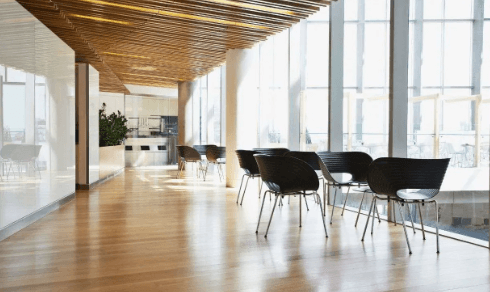The Importance of Acoustic Consultancy in Modern Building Design

Sound consulting is rapidly growing into an important aspect of architectural design where it becomes difficult to design buildings with good looks and bad acoustics. Whether it is an office space, residential building, school, hospital, or concert hall the sound characteristics influence the comfort and usability of the space or users’ overall experience. In combination with the tendency of growing urbanization, noise becomes a critical factor and the need to control it within and inside various constructions makes itself felt. This is where acoustic consultancy Nova Acoustics comes into play, assisting the architects, the developers, and other engineers to create environments within spaces that give better sound improved sound quality, and reduced noise.
Understanding Acoustic Consultancy
What is defined as acoustic consultancy is the various professional services that are provided by the consultants who in this field of specialty deal with the science of sound. These consultants offer recommendations as well as strategies on how to achieve proper acoustics in various settings. This involves the evaluation of noise levels, identification of areas for design modifications, and general monitoring of building regulations checking on acoustic issues.
In the context of modern building design, acoustic consultants focus on two main areas: acoustics, especially sound insulation, and acoustics engineering. Soundproofing is the process of reducing outside interference as much as possible together with inside interference while sound design deals with enhancing the quality of sound within that particular space. This is the role played by an acoustic consultant who comes with technical advice, specialized equipment, and scientific assistance to deliver the expected acoustic quality with a check on loud noises.
Why Acoustic Consultancy is Essential in Building Design
Today’s structures have a multiplicity of uses and usage of space means that environments with the proper acoustic behavior are required. There is discomfort, reduced productivity, and sometimes health problems that are caused by a bad acoustic environment. Acoustic consultancy Nova Acoustics ensures that sound is managed effectively in various settings, providing numerous benefits:
- Enhanced User Comfort: In environments like offices, schools, and homes, managing noise levels directly affects user comfort. Excessive noise can lead to stress, fatigue, and reduced concentration. Acoustic consultants design spaces where noise is minimized, improving the overall experience for occupants.
- Improved Productivity: In office environments, excessive noise can be a major distraction, reducing productivity. Acoustic consultants work to create sound-controlled spaces that minimize noise distractions, contributing to a more focused and efficient work environment.
- Health and Well-being: Prolonged exposure to high noise levels can lead to a range of health problems, including hearing loss, cardiovascular issues, and sleep disturbances. Acoustic consultants help design buildings that promote well-being by controlling noise pollution and creating healthier environments.
- Compliance with Building Regulations: Modern buildings are subject to a range of regulations regarding noise control and acoustic performance. Acoustic consultants ensure that designs comply with these regulations, avoiding potential legal issues and ensuring that the building is fit for purpose.
- Optimized Sound Quality: In certain environments, such as theaters, auditoriums, and concert halls, sound quality is paramount. Acoustic consultants specialize in designing spaces that enhance sound clarity and provide optimal listening experiences, making them essential for performance-based venues.
Key Areas of Focus for Acoustic Consultants
Acoustic consultants bring a variety of skills and expertise to modern building design. Their work encompasses several key areas that are critical for creating acoustically sound environments:
Noise Control: One of the primary concerns in modern building design is controlling noise from external and internal sources. Acoustic consultants analyze the noise levels in the environment and propose solutions to minimize unwanted sounds. This may involve specifying the use of soundproofing materials, designing sound barriers, or improving insulation to block out noise from traffic, construction, or adjacent buildings.
Room Acoustics: The design of interior spaces has a significant impact on how sound travels and is experienced by occupants. Acoustic consultants assess the materials, dimensions, and layout of rooms to optimize sound reflection, absorption, and diffusion. This is particularly important in environments like concert halls, conference rooms, and lecture theaters, where speech clarity and sound quality are essential.
Vibration Control: In many modern buildings, mechanical systems such as HVAC units, elevators, and machinery generate vibrations that can be transmitted through walls, floors, and ceilings. Acoustic consultants work to mitigate the impact of these vibrations on building occupants by recommending solutions such as isolation mounts, vibration-damping materials, and structural modifications.
Sound Insulation: Ensuring that sound does not travel between different rooms or areas within a building is another critical aspect of acoustic consultancy. Sound insulation involves the use of materials and construction techniques that prevent the transmission of sound through walls, floors, and ceilings. Acoustic consultants help select appropriate insulation materials and design strategies to achieve the desired level of sound isolation.
Speech Privacy: In office environments, hospitals, and other settings where confidentiality is important, speech privacy is a key consideration. Acoustic consultants can design spaces that minimize the transmission of speech between rooms or areas, ensuring that conversations remain private. This may involve the use of sound masking systems or specialized construction techniques to create soundproof environments.
Environmental Noise Impact Assessments: Before construction begins, acoustic consultants often conduct environmental noise impact assessments to evaluate the potential effects of the building on its surroundings. This may include analyzing traffic noise, industrial activity, or other sources of external noise that could affect the building or its neighbors. The results of these assessments help inform design decisions and ensure that the building meets noise control requirements.
The Role of Technology in Acoustic Consultancy
Advancements in technology have greatly enhanced the capabilities of acoustic consultants. Today, sophisticated modeling software and measurement tools allow consultants to simulate and analyze sound behavior in various environments with a high degree of accuracy. This technology provides a detailed understanding of how sound will behave in a building before construction begins, allowing for more informed design decisions.
Acoustic Modeling Software: Acoustic consultants use specialized software to create detailed models of buildings and analyze how sound will interact with different materials, surfaces, and structures. These models can simulate real-world acoustic scenarios, providing insights into sound propagation, reverberation, and noise levels. This allows consultants to make data-driven recommendations for improving the acoustical performance of a space.
Measurement Tools: During the design and construction phases, acoustic consultants use advanced measurement tools to assess sound levels and acoustic characteristics. These tools can measure noise levels, reverberation times, and sound transmission loss, providing valuable data for optimizing building design.
The Importance of Early Involvement
For acoustic consultancy to be most effective, it is essential to involve consultants early in the design process. Many acoustical issues arise from architectural decisions, such as the layout of rooms, the choice of materials, and the design of mechanical systems. By engaging an acoustic consultant from the outset, these issues can be addressed proactively, avoiding costly retrofits or design changes later in the project.
Early involvement of acoustic consultants also allows for the integration of sound control measures into the overall design, ensuring that acoustical considerations are not treated as an afterthought. This holistic approach leads to more effective sound management and better overall building performance.
Conclusion
Acoustic consultancy is no longer an optional consideration in modern building design—it is a necessity. As urban environments become more crowded and noise pollution increases, the demand for expertly designed acoustic solutions will only continue to grow. Acoustic consultants play a vital role in creating comfortable, functional, and sustainable spaces that meet the diverse needs of modern building occupants.





